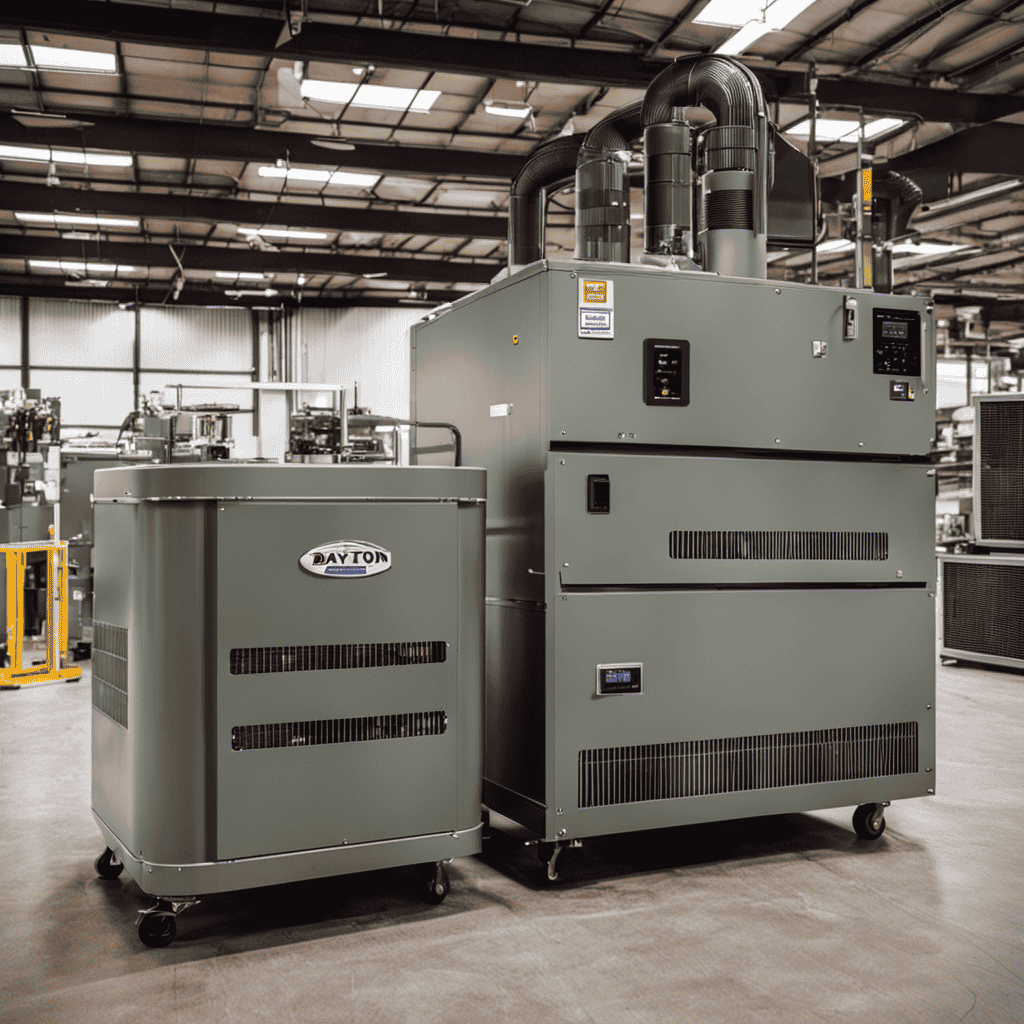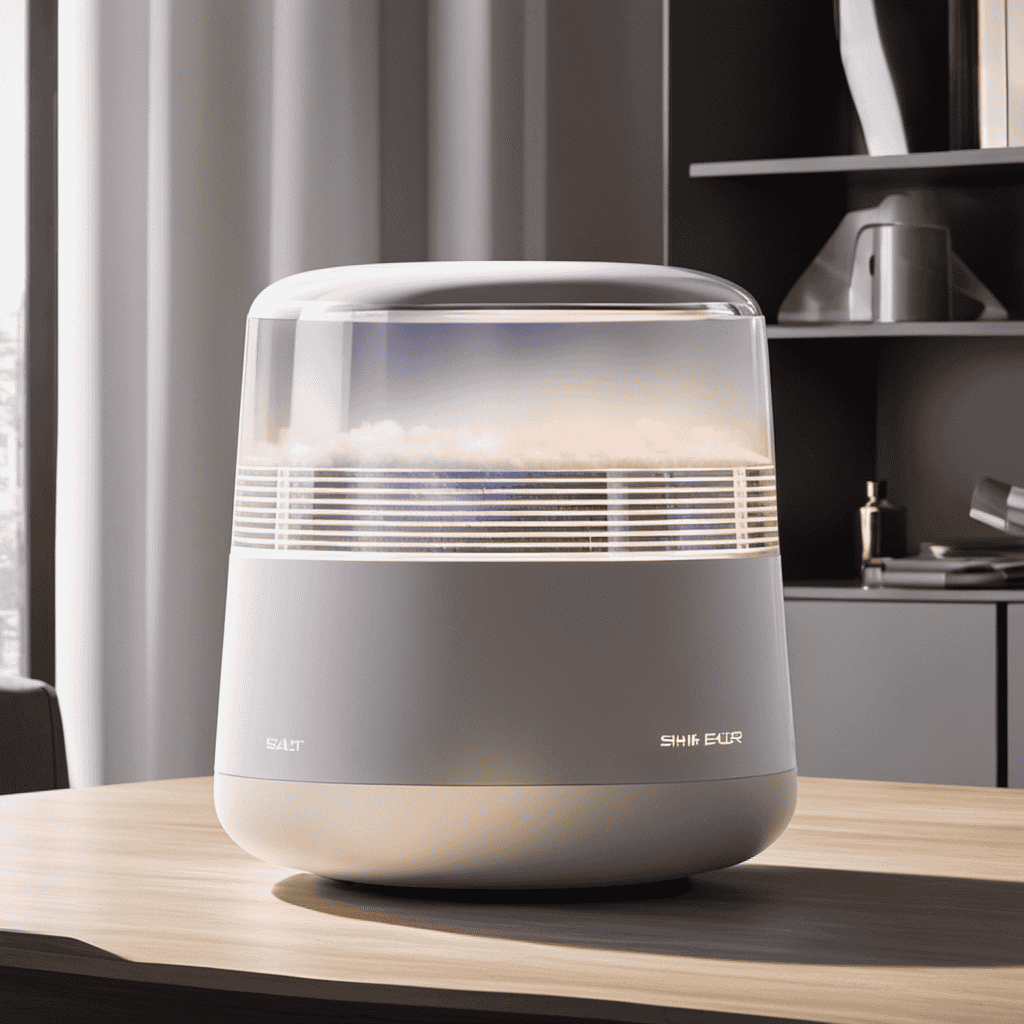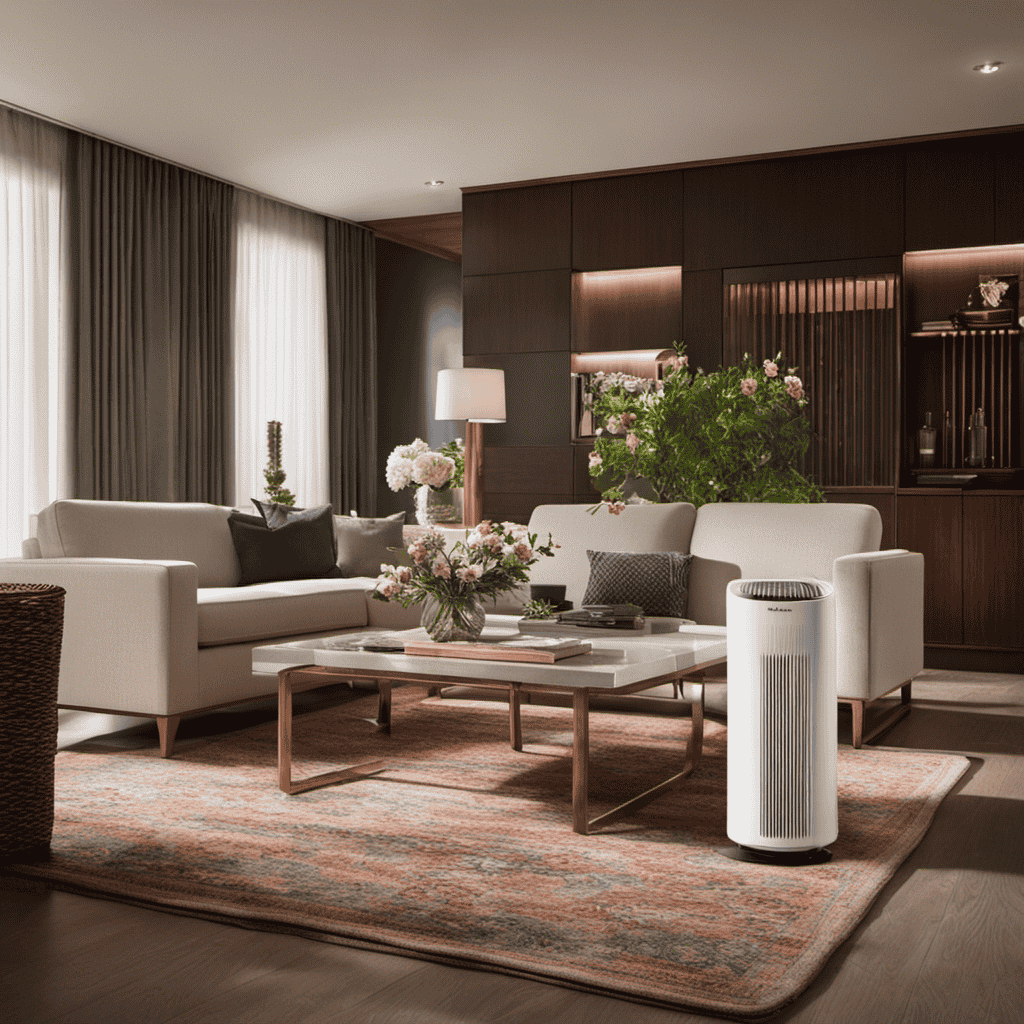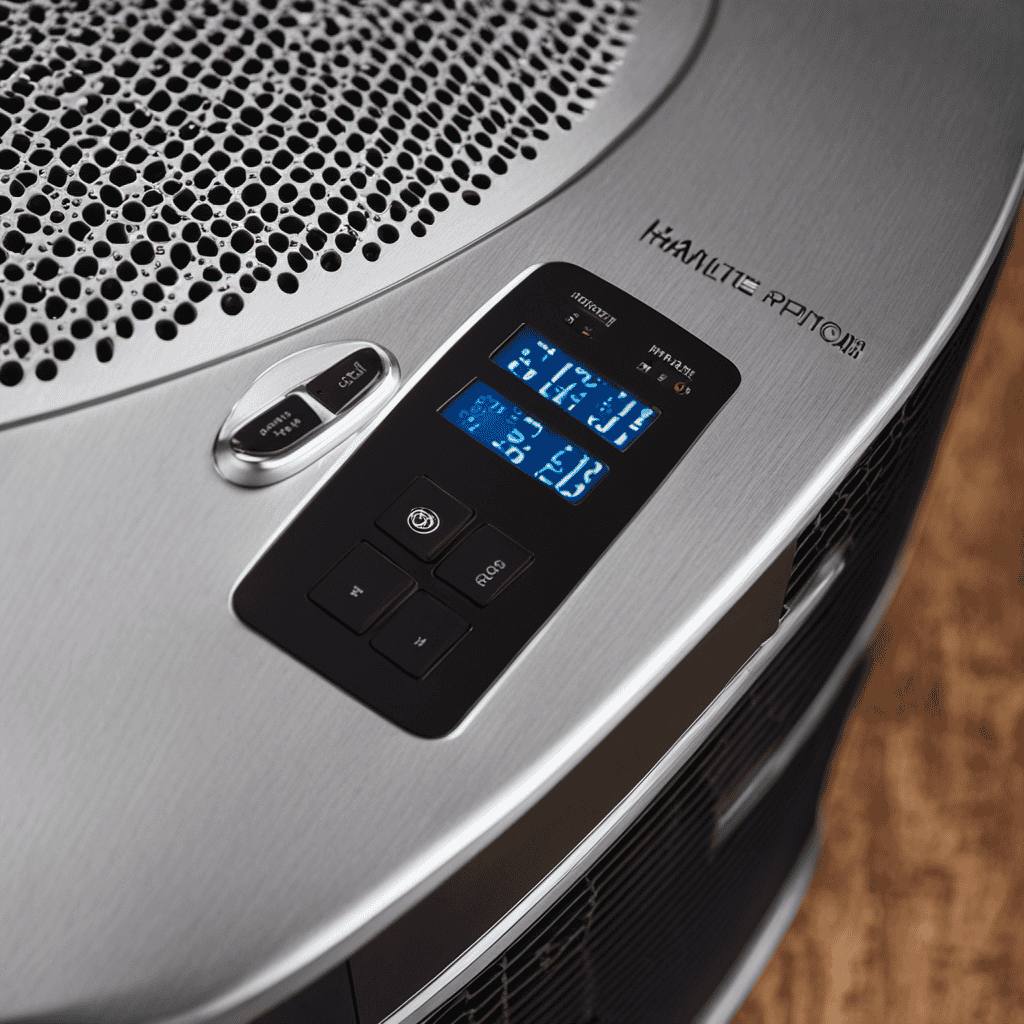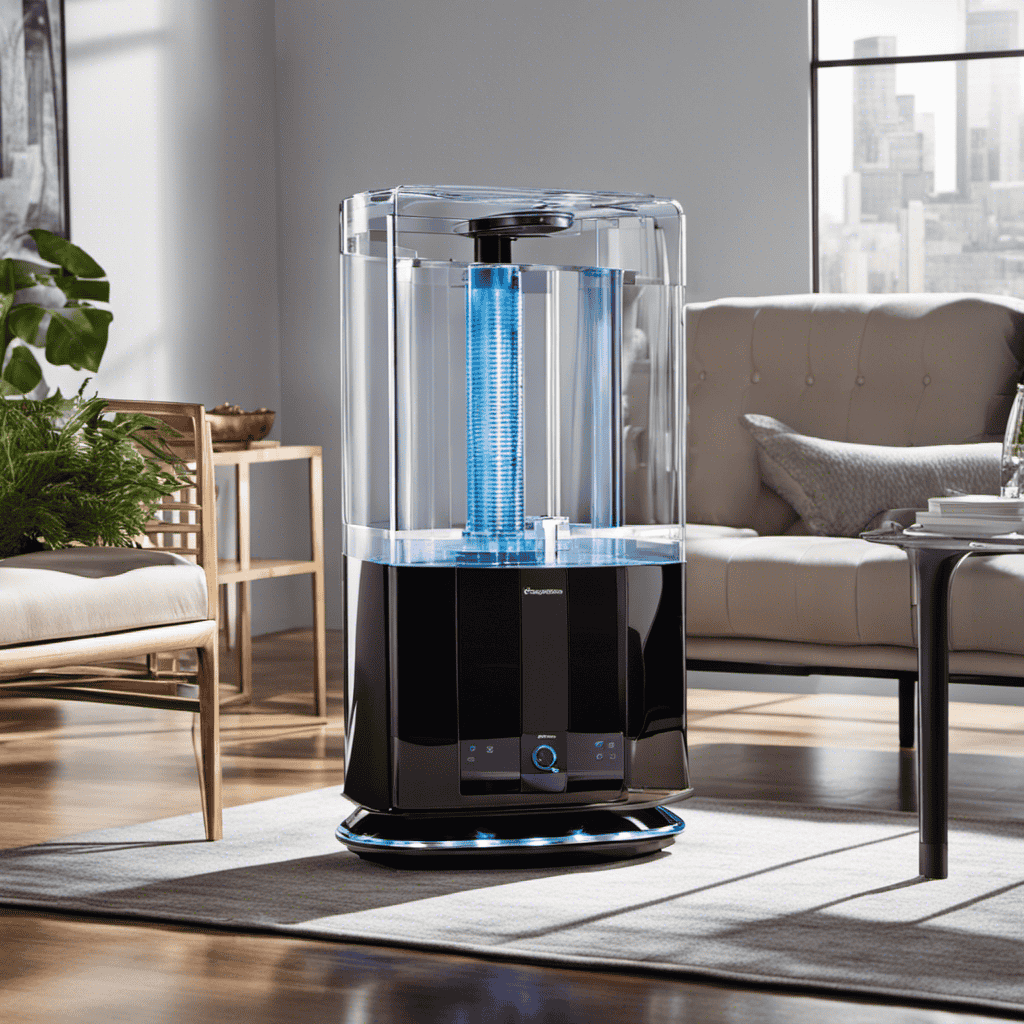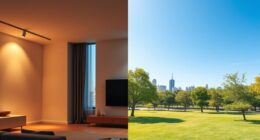I have always been curious about which air purifier would be the most cost-effective option for my one-bedroom apartment.
So, I delved into the world of air purification technologies to find the answer.
In this article, I will explore the factors to consider when choosing an air purifier, the importance of air quality in a small space, and the energy efficiency and cost-effectiveness of different models.
Join me as we analyze data and uncover the top 5 budget-friendly options for your apartment.
Key Takeaways
- Comparison of different air purifier brands and their prices is important when considering the most economical option for a 1 bedroom apartment.
- Understanding the different types of air purification technologies and their cost-effectiveness is crucial in making a decision.
- Considering the coverage area and CADR ratings of air purifiers is essential in choosing an option suitable for the size of the apartment.
- The presence of smart features and energy efficiency, such as a timer feature, should be taken into account when looking for an economical air purifier.
Factors to Consider When Choosing an Air Purifier
When choosing an air purifier for your 1 bedroom apartment, there are several factors to consider.
One important aspect is the comparison of different air purifier brands. Each brand has its own set of features and technologies that can affect the performance and efficiency of the purifier.
Another factor to consider is the price of the air purifier. Prices can vary depending on the brand, size, and additional features. Factors influencing air purifier prices include the type of filtration system, the coverage area, and the presence of smart features.
It is important to balance the features and price to find the most suitable and economical option for your 1 bedroom apartment.
Considering these factors will help ensure that you choose an air purifier that effectively improves the air quality in your living space.
The Importance of Air Quality in a 1 Bedroom Apartment
Improving the air quality in your 1 bedroom apartment is essential for your health and well-being. Indoor pollutants can have a significant impact on your respiratory system and overall health. Here are three important reasons why maintaining good air quality is crucial:
-
Reduction of allergens: Indoor pollutants like dust mites, pet dander, and mold spores can trigger allergies and asthma symptoms. By purifying the air, you can minimize these allergens and breathe easier.
-
Removal of toxins: Harmful chemicals and volatile organic compounds (VOCs) can be present in household products, furniture, and building materials. An air purifier can effectively filter out these toxins, reducing their concentration in your living space.
-
Prevention of respiratory issues: Breathing in polluted air can lead to respiratory infections, irritation, and even long-term lung damage. By removing pollutants, an air purifier helps protect your respiratory system and promotes better lung health.
Transitioning into the next section, let’s explore the energy efficiency and cost-effectiveness of air purifiers.
Energy Efficiency and Cost-effectiveness of Air Purifiers
To save on energy costs, you can consider using an air purifier with a timer feature that allows you to set specific operating hours. This way, you can optimize the energy consumption of the air purifier and make it more affordable to run. When choosing an air purifier, it is important to consider its energy efficiency and cost-effectiveness. To help you make an informed decision, here is a comparison of the energy consumption and affordability of different types of air purifiers:
| Air Purifier Type | Energy Consumption | Affordability |
|---|---|---|
| HEPA | Low | High |
| Activated Carbon | Moderate | Moderate |
| Ionizer | Low | Low |
| UV-C | Moderate | High |
| Ozone Generator | High | Low |
Understanding the different types of air purification technologies will further assist you in choosing the most economical air purifier for your 1 bedroom apartment.
Understanding the Different Types of Air Purification Technologies
When considering air purification technologies, it’s important to weigh the pros and cons as well as the cost and effectiveness.
Each technology has its own advantages and disadvantages, and understanding these can help in making an informed decision.
Additionally, cost and effectiveness play a crucial role in determining the value of an air purifier. It’s important to find a balance between affordability and performance.
Pros and Cons
Consider the pros and cons of each air purifier model before making a decision for your 1 bedroom apartment. To help you make an informed choice, here is a cost comparison and user reviews for three popular air purifiers:
-
Brand A:
- Pros: Affordable price, energy-efficient operation, and high CADR (Clean Air Delivery Rate) for effective air purification.
- Cons: Limited coverage area, may require frequent filter replacements, and some users reported noise issues.
-
Brand B:
- Pros: Moderate price range, advanced filtration technology, and customizable settings for personalized air purification.
- Cons: Slightly higher energy consumption, larger size may take up more space, and a few users mentioned a slight odor when running.
-
Brand C:
- Pros: Premium features, such as smart connectivity and air quality sensors, sleek design, and quiet operation.
- Cons: Higher upfront cost, may be more complex to operate and maintain, and a few users reported difficulty in finding replacement filters.
Consider these factors, along with your specific needs and budget, to choose the most economical air purifier for your 1 bedroom apartment.
Cost and Effectiveness
You should compare the cost and effectiveness of each air purifier model before making a decision.
When it comes to air purifiers, there are several brands available in the market, each offering different features and prices. It is important to consider both the cost and effectiveness of these models to ensure you make an informed choice.
In terms of cost, some air purifier brands may be more affordable than others, but it is crucial to also evaluate their effectiveness in purifying the air. Look for models that have high CADR (Clean Air Delivery Rate) ratings, as this indicates their ability to remove pollutants efficiently.
Additionally, consider the size of your 1 bedroom apartment and choose an air purifier that is suitable for that space.
Top 5 Budget-friendly Air Purifiers for Small Spaces
Looking for an affordable air purifier for your small space? Here are the top 5 budget-friendly options that provide excellent performance without breaking the bank:
-
Honeywell HPA100: This air purifier is perfect for small bedrooms and offers a powerful filtration system that captures up to 99.97% of airborne particles. Its compact design allows it to fit seamlessly into any space.
-
Levoit Core 300: With its True HEPA filter and three-stage filtration system, the Core 300 effectively removes allergens, pet dander, and smoke. It also operates quietly, making it ideal for bedrooms.
-
GermGuardian AC4100: This compact air purifier is designed for small rooms and features a UV-C light that kills germs and bacteria. It also has a HEPA filter to capture dust and allergens.
When comparing cost-effective options, it’s essential to consider the performance of the air purifier. These top 5 budget-friendly air purifiers offer excellent filtration capabilities and are perfect for small spaces.
How to Calculate the Cost of Owning and Operating an Air Purifier
When considering the cost of owning and operating an air purifier, there are several factors that come into play.
These factors can greatly impact the overall cost and efficiency of the device.
One of the key factors to consider is the energy efficiency rating of the air purifier, as this can affect both the initial cost and the long-term operating expenses.
Factors Affecting Cost
Factors affecting cost include the size of the air purifier and the specific features it offers. When considering the size, it’s important to think about the square footage of the room in which the air purifier will be used. A larger room may require a more powerful and thus more expensive air purifier.
The specific features of an air purifier can also impact its cost. Some features to consider include the type of filtration system, the presence of a HEPA filter, and additional functionalities like air quality sensors or remote control operation. These factors affect performance and can have a direct impact on health by removing allergens and pollutants from the air.
Transitioning into the next section, energy efficiency ratings are also an important consideration when evaluating the overall cost of owning and operating an air purifier.
Energy Efficiency Ratings
To save on energy costs, you can compare different air purifiers’ energy efficiency ratings.
When it comes to air purifier brands, it’s essential to consider their energy efficiency to ensure you’re getting the most economical option for your 1 bedroom apartment.
By analyzing customer reviews, you can gather valuable information about the energy efficiency of various air purifiers. Look for reviews that mention energy consumption, electricity bills, and overall efficiency.
Pay attention to specific data points, such as the power consumption in watts or the energy efficiency rating in kilowatt-hours per year.
Consider factors like the size of your apartment and the recommended room coverage of the air purifier to find the most suitable and energy-efficient option for your needs.
Maintenance Tips to Extend the Lifespan of Your Air Purifier
Regularly cleaning and replacing the filters can help you extend the lifespan of your air purifier. Here are three maintenance tips to keep your air purifier running efficiently:
-
Clean the pre-filter: The pre-filter captures larger particles like dust and pet hair. Regularly vacuum or wash the pre-filter to prevent clogging and maintain optimal airflow.
-
Replace the HEPA filter: The HEPA filter is responsible for trapping tiny particles like allergens and pollutants. Check the manufacturer’s recommendations and replace the HEPA filter as needed to ensure maximum filtration efficiency.
-
Clean the carbon filter: The carbon filter helps eliminate odors and harmful chemicals. Gently vacuum or wipe the carbon filter to remove any accumulated dirt or debris.
By following these maintenance tips and regularly replacing the filters, you can ensure that your air purifier functions effectively and efficiently, providing you with clean and fresh air.
Now, let’s explore another important aspect of air purifiers: noise levels and finding a quiet air purifier for your bedroom.
Noise Levels: Finding a Quiet Air Purifier for Your Bedroom
Now, let’s explore how you can find a quiet air purifier for your bedroom and enjoy a peaceful night’s sleep. When it comes to choosing an air purifier, quietness is a crucial factor to consider, especially if you’re sensitive to noise or if you want to maintain a serene environment for better sleep quality. To help you make an informed decision, I have compiled a table comparing the noise levels of different air purifiers:
| Air Purifier Model | Noise Level (decibels) |
|---|---|
| Model A | 25 dB |
| Model B | 30 dB |
| Model C | 35 dB |
| Model D | 40 dB |
| Model E | 45 dB |
As you can see from the table, Model A is the quietest option with a noise level of only 25 dB, providing you with a peaceful and undisturbed sleep environment. Remember, choosing a quiet air purifier can significantly improve your sleep quality, ensuring a restful and rejuvenating night’s sleep.
The Benefits of HEPA Filters in Air Purifiers
When it comes to air purifiers, one key feature that stands out is the HEPA filter. These filters are designed to trap and remove a wide range of particles, including allergens, dust, and even some bacteria.
Not only do HEPA filters help in creating cleaner indoor air, but they also boast an impressive allergen removal efficiency, making them a top choice for those who suffer from allergies or asthma.
HEPA Filters Explained
HEPA filters are a popular choice for removing airborne particles in air purifiers. Here’s why they stand out compared to other filters:
-
HEPA filters have a high efficiency rating of 99.97%, meaning they can capture particles as small as 0.3 microns. This ensures that even the tiniest allergens like pollen, pet dander, and dust mites are eliminated from the air.
-
Unlike other filters that may only trap larger particles, HEPA filters are designed to capture both small and large particles. This comprehensive filtration system makes a significant difference in improving indoor air quality.
-
HEPA filters are highly effective at removing harmful pollutants such as mold spores, bacteria, and viruses. This is especially important for individuals with respiratory conditions or weakened immune systems.
Cleaner Indoor Air
Using a HEPA filter in your air purifier ensures that smaller particles like pollen, pet dander, and dust mites are effectively removed from the air you breathe.
Indoor air pollutants can have a significant impact on our health, causing allergies, asthma, and other respiratory issues. Air purification is essential for maintaining cleaner indoor air and reducing the risk of these health problems.
The benefits of air purification extend beyond just removing allergens. It also helps eliminate harmful toxins, such as volatile organic compounds (VOCs), bacteria, and viruses.
By investing in an air purifier with a HEPA filter, you can enjoy cleaner and healthier indoor air, creating a more comfortable living environment.
With this knowledge of the benefits of air purification, let’s now explore the allergen removal efficiency of different air purifiers.
Allergen Removal Efficiency
Investing in an air purifier with a HEPA filter can greatly improve the efficiency of allergen removal in your home. HEPA filters are designed to capture particles as small as 0.3 microns, including dust, pollen, pet dander, and mold spores. When considering allergen removal technology, it is important to choose a reputable air purifier brand that offers reliable performance and long-lasting filters.
Here are three top-rated air purifier brands known for their allergen removal efficiency:
-
Blueair: Blueair air purifiers utilize HEPASilent technology, which combines electrostatic and mechanical filtration to remove 99.97% of airborne pollutants.
-
Coway: Coway air purifiers feature a multi-stage filtration system that includes a HEPA filter to capture allergens and a carbon filter to eliminate odors.
-
Honeywell: Honeywell air purifiers use True HEPA filters to capture up to 99.97% of airborne particles, providing clean and fresh air.
By investing in an air purifier with superior allergen removal technology, you can create a healthier living environment for you and your family.
Now, let’s assess the long-term savings of using an air purifier in your apartment.
Assessing the Long-term Savings of Using an Air Purifier in Your Apartment
To figure out if an air purifier is cost-effective for your apartment, you’ll want to consider the long-term savings. Calculating these savings involves taking into account not only the initial cost of the air purifier itself, but also ongoing expenses such as filter replacements and energy consumption.
Additionally, it is important to weigh the potential health benefits that an air purifier can provide. Studies have shown that air purifiers can help remove allergens, pollutants, and other harmful particles from the air, leading to improved indoor air quality and potentially reducing the risk of respiratory issues and allergies.
Frequently Asked Questions
Can I Use an Air Purifier in a Room Other Than a Bedroom?
Yes, you can use an air purifier in any room, not just a bedroom. Air purifiers provide numerous benefits, including removing allergens, pollutants, and odors from the air. Their effectiveness is not limited to a specific room.
How Often Should I Replace the Filters in My Air Purifier?
I replace the filters in my air purifier regularly to ensure optimal performance and maintain clean air in my home. Regular filter replacement is essential for effective air purifier maintenance and reaping the benefits of clean air.
Are Air Purifiers Safe to Use Around Pets and Children?
Air purifiers are generally safe for pets and children, but it’s important to choose one that effectively removes pollutants without emitting harmful byproducts. Consider potential health risks and select a purifier with a high Clean Air Delivery Rate.
Can an Air Purifier Help With Allergies and Asthma Symptoms?
Yes, an air purifier can greatly help with allergies and asthma symptoms. The effectiveness of air purifiers in reducing airborne allergens and pollutants has been proven through data-driven studies. The benefits are undeniable.
What Is the Average Lifespan of an Air Purifier?
The average lifespan of an air purifier depends on various factors such as usage, maintenance, and quality. It is important to consider the average cost and energy consumption when choosing an economical option for a 1 bedroom apartment.
Is the Most Economical Air Purifier for a 1 Bedroom Apt Available in Greensboro?
Looking to buy air purifier Greensboro? The most economical air purifier for a 1 bedroom apartment in Greensboro may be available at various local stores or online retailers. Consider energy efficiency, filter replacement costs, and room size coverage when making your purchase decision.
Conclusion
In conclusion, it is clear that finding the most economical air purifier for a 1 bedroom apartment is crucial. By understanding the different types of air purification technologies and considering budget-friendly options, you can ensure clean and healthy air in your living space.
Moreover, maintaining and choosing a quiet air purifier with HEPA filters can further enhance the overall air quality. Assessing the long-term savings of using an air purifier will undoubtedly leave you satisfied with your investment.
So, take a breath and enjoy the benefits of a well-chosen air purifier in your apartment.

